What Is Postpartum Depression?
Postpartum depression refers to depression occurring after childbirth. This form of depression is a serious but treatable medical illness that involves feelings of extreme sadness, indifference, and anxiety that often brings significant changes in energy, sleep, and attitude. The exact cause of postpartum depression is not known but it is believed to be linked to physical, chemical, social, and emotional changes that happen when having a baby. The good news is that postpartum depression can be treated with medication and counseling, and relief can be found.
Postpartum Depression Symptoms
There are many symptoms of postpartum depression, including lack of interest or having trouble bonding with your baby, feeling anxious around your baby, or even having thoughts of hurting your baby. You may have trouble sleeping, cry for no reason or have thoughts of suicide.
Baby Blues Symptoms
Numerous women get what is commonly known as the baby blues — a mild, brief bout of depression — within a few days of giving birth. This is completely normal, and for many women, the baby blues go away in a few days. If your baby blues don’t go away, and you continue to experience these feelings for longer than 2 weeks, you may have postpartum depression.
Postpartum Psychosis
Postpartum psychosis (which is sometimes called puerperal psychosis or postnatal psychosis) is very different from the baby blues. Symptoms usually start suddenly within the first 2 weeks after giving birth, and can include delusions or hallucinations. Postpartum psychosis is a severe form of postpartum depression and requires emergency medical attention. Please contact your doctor immediately or call 911 if you or a loved one are experiencing symptoms of psychosis.
Postpartum Depression In New Fathers
Postpartum depression isn’t just something new mothers can get. It can affect new fathers too. One in ten dads get postpartum depression, and up to 18% develop a generalized anxiety disorder, obsessive-compulsive disorder, or post-traumatic stress disorder at some point during pregnancy or in the first year postpartum. According to the American Academy of Pediatrics (AAP), this rate can increase to 50% when the mother also has postpartum depression.
When To See A Doctor
If you are experiencing symptoms of postpartum depression please talk to a doctor as soon as possible. They can provide treatments that will help you understand what you’re going through, deal with your symptoms and feelings, and feel more like yourself again.
How Is Postpartum Depression Treated?
Postpartum depression is treated differently, depending on the type of symptoms and how severe they are. Treatment options include anti-anxiety or antidepressant medications, psychotherapy, and participation in a group setting for emotional support and education.
If You Have Suicidal Thoughts
A mom is having suicidal thoughts if she is thinking about hurting herself and/or ending her life. These thoughts, no matter how real they seem, are a good reason to immediately seek help. Every mom with postpartum depression does not have these thoughts, but when they occur, they are an indication that someone is suffering, and should be taken seriously.
The 988 Suicide & Crisis Lifeline, formerly known as the National Suicide Prevention Lifeline, is the fastest and easiest way to reach trained crisis counselors who can help with suicide and mental health crises. If you or someone you know is having these thoughts please call 988, or seek medical help immediately.
Helping A Friend Or Loved One
The best thing to do is to encourage her to talk about it. Let her know that these feeling are normal, that there is a reason for them, and that she is not alone. Offer to help her get professional help, and to facilitate that to make it happen.
Postpartum Depression FAQ
Yes. Many women take medication for depression, anxiety, or psychosis under a doctor’s supervision while breastfeeding.
Research has found no significant differences in the rate of postpartum depression between mothers of boys or girls.
It does. Women who have twins are more likely to report postpartum depression, and women older than 40 who have twins are at a markedly higher risk for postpartum depression.
It can. That’s why sleep is the first thing doctors focus on when diagnosing and treating postpartum depression. The best advise a new mother can heed is to sleep whenever your baby sleeps.
Very common. An estimated one in seven women experiences postpartum depression. Any woman who has had a baby, miscarried, recently weaned a child from breast feeding, or adopted a child can suffer from postpartum depression. A woman may experience postpartum depression regardless of her age, socioeconomic status, or number of children she has given birth to previously.
- Your “baby blues” don’t get better after the first two weeks
- Sadness or guilt continue to consume your thoughts
- Worrying excessively or constantly feeling on edge
- You can’t decide whether or not to get out of bed
- You are having constant doubts about yourself as a mother
- You think about harming yourself or wish you were dead
There is no one cause of postpartum depression, but these physical and emotional issues may contribute:
- Hormones. The dramatic drop in estrogen and progesterone after you give birth.
- Lack of sleep. When you’re sleep-deprived it is easy to feel overwhelmed.
- Anxiety. You may be anxious about your ability to care for a newborn.
- Self-image. You may feel less attractive or struggle with your sense of identity.
- Control. You may suddenly feel that you’ve lost control over your life.
There is a genetic component to postpartum depression, and the hormonal changes of pregnancy may help trigger a depressive episode in vulnerable women. Additional factors such as age, fertility challenges, and first-time motherhood can also increase the risk for developing postpartum depression.
